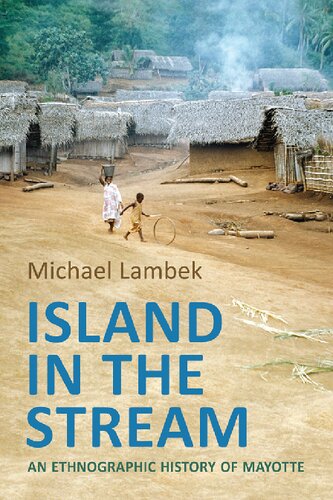

Most ebook files are in PDF format, so you can easily read them using various software such as Foxit Reader or directly on the Google Chrome browser.
Some ebook files are released by publishers in other formats such as .awz, .mobi, .epub, .fb2, etc. You may need to install specific software to read these formats on mobile/PC, such as Calibre.
Please read the tutorial at this link: https://ebookbell.com/faq
We offer FREE conversion to the popular formats you request; however, this may take some time. Therefore, right after payment, please email us, and we will try to provide the service as quickly as possible.
For some exceptional file formats or broken links (if any), please refrain from opening any disputes. Instead, email us first, and we will try to assist within a maximum of 6 hours.
EbookBell Team

4.0
36 reviewsIsland in the Stream introduces an original genre of ethnographic history as it follows a community on Mayotte, an East African island in the Mozambique Channel, through eleven periods of fieldwork between 1975 and 2015. Over this 40-year span Mayotte shifted from a declining and neglected colonial backwater to a full d?partement of the French state. In a highly unusual postcolonial trajectory, citizens of Mayotte demanded this incorporation within France rather than joining the independent republic of the Comoros. The Malagasy-speaking Muslim villagers Michael Lambek encountered in 1975 practiced subsistence cultivation and lived without roads, schools, electricity, or running water; today they are educated citizens of the EU who travel regularly to metropolitan France and beyond.
Offering a series of ethnographic slices of life across time, Island in the Stream highlights community members' ethical engagement in their own history as they looked to the future, acknowledged the past, and engaged and transformed local forms of sociality, exchange, and ritual performance. This is a unique account of the changing horizons and historical consciousness of an African community and an intimate portrait of the inhabitants and their concerns, as well as a glimpse into the changing perspective of the ethnographer.